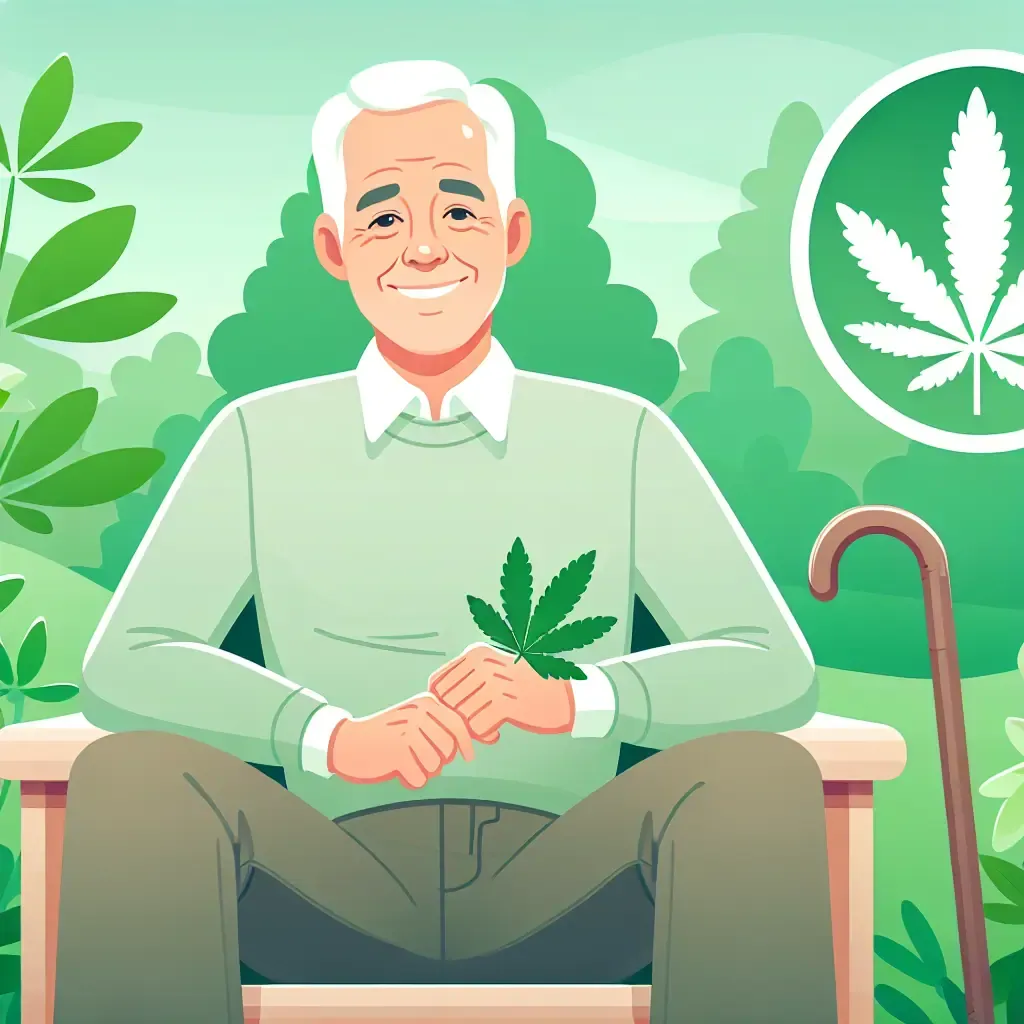Benefits of Medical Cannabis for Seniors: An Overview
In recent years, medical cannabis has gained significant traction as a noteworthy treatment option for a variety of health conditions. Interestingly, a growing segment of its user base comprises seniors seeking relief from ailments commonly associated with aging. Why are more and more seniors turning to medical cannabis? This article delves into the basics of medical cannabis, explores its potential benefits and risks for seniors, and provides practical advice for those considering it as a treatment option.
Understanding Medical Cannabis
Medical cannabis refers to the use of cannabis and its constituent cannabinoids, such as THC (tetrahydrocannabinol) and CBD (cannabidiol), to treat or manage medical conditions. Cannabis has been utilized for its therapeutic properties for thousands of years, but it’s only in recent decades that its potential medicinal benefits have been acknowledged more widely in the modern healthcare industry.
Cannabis, traditionally known for its psychoactive or “mind-altering” effects, primarily because of THC, has another significant component, CBD, which is non-psychoactive and has gained popularity for its therapeutic potential. Various studies have suggested that cannabis can help manage ailments such as chronic pain, anxiety, sleep disorders, and even symptoms related to serious illnesses like cancer and Parkinson’s disease.
For seniors, who are often dealing with multiple health issues, these therapeutic properties can be especially appealing. As the stigma surrounding cannabis continues to fade with further legalization and research, more seniors are exploring its benefits, motivated by the prospect of reducing reliance on traditional pharmaceuticals and their often accompanying side effects.
Benefits and Risks of Medical Cannabis for Seniors
Potential Benefits
One of the primary reasons seniors are increasingly turning to medical cannabis is its potential to alleviate chronic pain. Conditions like arthritis, neuropathy, and back pain are common in seniors, and while traditional pain relievers can be effective, they also come with a risk of dependency and other side effects. Cannabis offers a more natural alternative, with research indicating it can significantly reduce pain symptoms.
Moreover, as sleep disturbances become more common with age, many seniors find cannabis helpful in improving sleep quality. According to a study published in the Journal of Clinical Psychology, cannabis can support improved sleep patterns, offering relief to those suffering from insomnia.
Additionally, seniors experiencing mood disorders such as anxiety and depression may find relief in medical cannabis. CBD, in particular, has been shown to have calming effects, making it a promising option for those struggling with mental health issues. Furthermore, some studies suggest cannabis can even help improve cognitive function in those with neurodegenerative diseases like Alzheimer’s, although more research is needed in this area.
Consideration of Risks
Cannabis can interact with other medications, potentially altering their effectiveness or causing adverse side effects. Therefore, it is crucial for seniors to consult with healthcare professionals before starting medical cannabis to ensure it is safe for their specific health conditions and medications.
Moreover, certain strains high in THC may cause dizziness or impairment, especially in higher doses, which can increase the risk of falls, a significant concern for seniors. As such, starting with products higher in CBD and lower in THC, and using them in moderation, is often recommended.
Lastly, while the addictive potential of cannabis is significantly lower than other substances, dependence can still occur. Seniors should use it responsibly and under medical guidance to avoid risks of misuse.
Practical Tips for Seniors Considering Medical Cannabis
For seniors contemplating the use of medical cannabis, here are some practical tips to ensure a safe and effective experience:
Consult Your Doctor: Before integrating cannabis into your treatment regimen, discuss it with your healthcare provider to understand how it might interact with your current medications and how best to address your specific health needs.
Start Slowly: If you decide to use cannabis, begin with low doses, especially with THC containing products. Monitoring how your body responds before adjusting the dosage helps in minimizing unwanted side effects.
Explore Different Consumption Methods: Medical cannabis comes in various forms, such as oils, edibles, topicals, and vaporizers. Experimenting with different methods can help you find what works best for your condition and lifestyle preferences.
Stay Informed: The landscape of medical cannabis is continually evolving. Staying updated with the latest research and developments can help you make informed decisions about your treatment options.
- Check for Legality: Ensure that the use of medical cannabis is legal in your state or country, and be sure to obtain it from a reputable dispensary to ensure the quality and safety of the product.
Conclusion
As the senior population continues to grow, so does the exploration into alternative therapies for age-related health issues. Medical cannabis, with its promising potential to alleviate chronic pain, improve sleep, and support mental health, is becoming an increasingly popular choice for seniors. However, like any treatment, it comes with its set of risks and should be used thoughtfully.
For seniors considering medical cannabis, consulting healthcare professionals, starting with low doses, and staying informed about potential interactions and benefits are critical steps to ensure a safe experience. As research and acceptance of cannabis progress, it could play an influential role in senior healthcare, offering a new lease on life for many.
Feel free to explore more about medical cannabis here, and don’t hesitate to share your experiences and thoughts in the comments below. Your insights could be invaluable to those contemplating this path.
By understanding the pros and cons and adopting a responsible approach, seniors can harness the potential of medical cannabis to improve their quality of life as they age gracefully.
FAQ: Medical Cannabis for Seniors
1. What are the potential benefits of medical cannabis for seniors?
Medical cannabis may help alleviate symptoms like chronic pain, insomnia, anxiety, and loss of appetite, as well as support conditions such as arthritis and neuropathy.
2. Are there any risks or side effects seniors should be aware of?
Seniors may experience side effects such as dizziness, dry mouth, cognitive impairment, or interactions with other medications. It’s important to consult with a healthcare provider.
3. How should seniors start using medical cannabis?
Seniors should begin with a low dose and gradually increase it while monitoring effects. Consulting with a medical professional experienced in cannabis is recommended.
4. Is medical cannabis legal for seniors?
Legality varies by region; seniors should verify state or local laws and obtain a medical marijuana card if necessary.
5. What forms of medical cannabis are suitable for seniors?
Seniors can use various forms like oils, tinctures, edibles, and topicals, ensuring they choose a method that aligns with their health needs and lifestyle.
Share this content:



